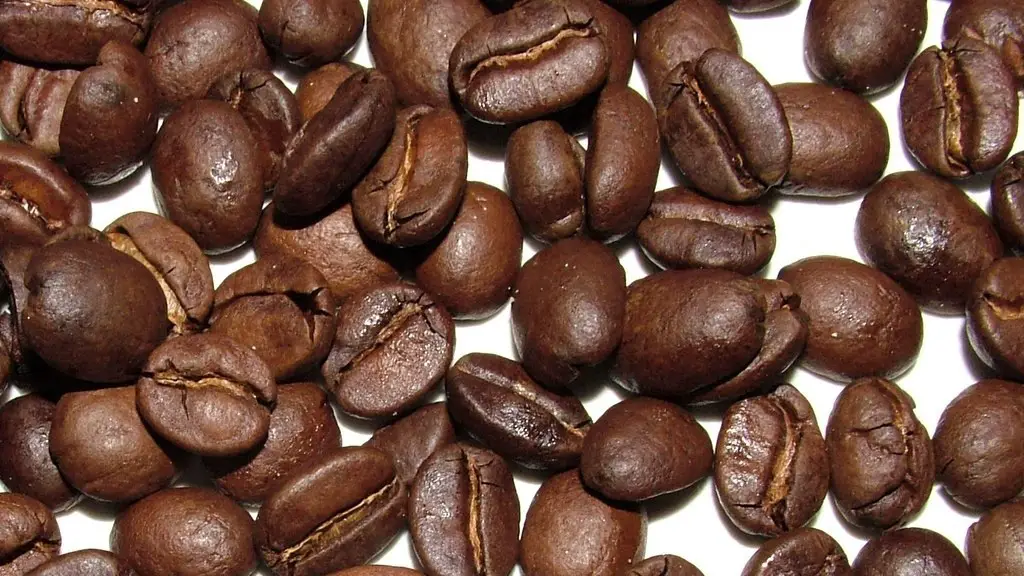Coffee has a bad reputation when it comes to weight loss, but some experts are starting to argue that drinking the right type of coffee can actually help you to shed a few extra kilos. Various studies over the years have sought to explain whether drinking coffee can really aid in weight loss. While science has yet to state outright whether this is the case, there are several notable results that may suggest a link between coffee consumption and weight management.
When it comes to weight loss, it is largely documented that caffeine can act as an appetite suppressant, allowing you to feel fuller for longer. Caffeine has also been proven to increase the body’s metabolism, which means that the body is more efficient in converting food into energy. A combination of these two effects could theoretically help someone to reduce their calorie intake and burn more energy, thus aiding in weight loss.
In addition to the direct affects coffee could have on weight loss, another factor to consider is the potential savings in calories when someone chooses to drink coffee instead of higher calorie alternatives. A latte can have as many as 200 calories, while black coffee contains hardly any. Over time, this small change in someone’s diet can add up to big savings, thus leading to weight loss.
Coffee may very well have a role to play in the battle against weight control, but its effects in this area have yet to be conclusively established. In particular, caffeine sensitivity can have a major impact on how coffee is consumed and the results it yields. Some people are far more sensitive to caffeine than others and as such, need to limit their coffee consumption for fear of adverse health effects. For those who can handle coffee, it’s probably safe to assume that in moderation, it can help with weight loss.
That said, it is recommended that you consult with a nutritionist, who can advise you on how best to make sure that you reach your weight loss goals. With some healthy and appropriate dieting, there is no reason why coffee shouldn’t become a useful tool in your plan.
Can decaffeinated coffee help with weight loss?
As an alternative to regular coffee, many people have asked if decaffeinated coffee holds any value when it comes to weight loss. It is important to bear in mind that decaffeinated coffee has not been studied in the same way as regular coffee, and as such, any claims on its benefits are likely to be heavily anecdotal.
That said, while decaffeinated coffee might not have a direct impact on weight loss, it can still be of some benefit. It might be the case, for example, that it can act as a distraction from cravings; if you succumb to the lure of a temptation, drinking a cup of decaf instead could give you some time to take a breath and think about how to get back on track.
Decaffeinated coffee makes an ideal choice for those who either cannot consume normal coffee or just do not enjoy the taste. However, it’s also worth bearing in mind that while it may not contain caffeine, it can still contain sugar or other ingredients that can be detrimental to weight loss.
Decaffeinated coffee could very well be a useful tool in the fight against unwanted weight, but, as with regular coffee, it should only be consumed in moderation. A better approach may be to focus more on implementing healthy eating and exercise habits, which research has shown to be far more effective at both losing weight and maintaining a healthy lifestyle.
Are there any other health benefits to drinking coffee?
Coffee is widely consumed across the world and has a variety of benefits to both physical and mental health. Many people drink coffee to help them focus throughout the day, while others swear by its anti-aging properties.
One of the most noticeable of coffee’s effects is its ability to act as an energy and mental alertness booster. Caffeine is a stimulant that helps to activate the brain, increasing alertness and concentration levels. This can be particularly useful for people needing to work long hours or focus on difficult tasks. What’s more, studies have also suggested that consuming coffee regularly may reduce the risk of a variety of health conditions, most notably those related to both the heart and liver.
Coffee has also been proven to have numerous psychological benefits, most notably in terms of its mood-boosting properties. Numerous studies have found that habitual coffee drinkers tend to display heightened levels of happiness and general wellbeing. This can be attributed to both the presence of caffeine itself, as well as its positive associations with social gatherings, such as meeting with friends for coffee.
Admittedly, much of the evidence surrounding coffee’s health benefits is anectodal, and in some cases, contradictory. Therefore, any health advice related to coffee should be taken with a grain of salt. That said, using coffee to help support weight loss is a claim that should be further studied and evaluated.
Are their alternatives to coffee for aiding in weight loss?
When it comes to aiding in weight loss, coffee is not the only option. In fact, there are a variety of beverages and foods that could help to promote weight loss. Green tea, for example, is widely known to have a variety of benefits when it comes to health, one of which being its potential to help people reach their weight loss goals.
Green tea can help you to burn fat through its metabolism-boosting effect, while its high-catechins content provides an antioxidant boost to help the body better break down fat. Another drink to consider is lemon water, which is rich in vitamin C and can be used to suppress hunger cravings. Finally, vegetable juices have been found to be particularly effective in helping people to reach their weight loss goals, due to their low calorie count and high nutritional value.
All of these drinks offer valuable alternatives to coffee and can be useful in aid of weight loss. Ultimately, though, any weight loss plan should contain a combination of moderate exercise, healthy eating habits, and in some cases, supplementation.
Overall, coffee could be seen as beneficial for weight loss, but it’s important to remember to consult with a doctor and nutritionist before attempting any major changes to your diet. Everyone is different, and as such, what works for one person could be incredibly different for the next.
Can coffee help with weight maintenance?
It’s not just about losing weight that can be aided by coffee, but weight maintenance as well. Once you have reached your desired weight, it can be difficult to keep it at this level without continued monitoring and proper nutrition.
One of the most common challenges with weight maintenance is finding ways to stay energized while keeping within a limited calorie count. This is where coffee can really help. Caffeine helps to increase not just alertness, but the ability to push through mental resistance during exercise.
Although it’s important to stay active, it’s equally, if not more important to ensure an appropriate diet. Coffee can help with this too, as it has a slight appetite-suppression effect that can be of great use when it comes to controlling cravings.
In general, coffee offers a great way to support both weight loss and maintenance plans. Whether it be through its metabolism-boosting or appetite-suppressing effects, it can be a valuable asset when it comes to achieving your desired weight. With some careful monitoring, it can also be done in a safe, healthy way.





